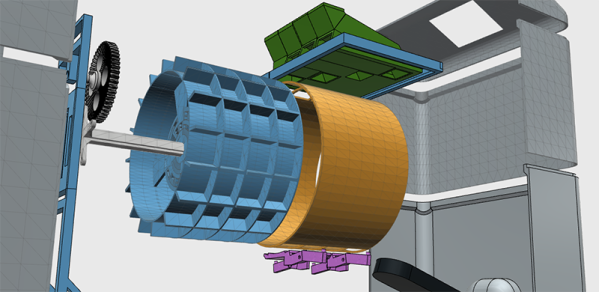The biggest problems with pharmaceuticals isn’t patents, industry reps, or the fact that advertisement to consumers is allowed; this only happens in the United States. No, the biggest problem with pills and medications is compliance, or making sure the people who are prescribed medication take their medication. For his Hackaday Prize entry, [Joe] is working on a solution. It’s a smart desktop medicine organizer, and you can think of it as a pill box with smarts.
The list of features of [Joe]’s organizer include automatic pill organization – each prescription is accessed independently of all the others. When it’s time to take a pill, the smart medication dispenser plops out a pill. You can check out the demo video [Joe] put together using M&M candies.
There are a few more features for the Smart Desktop Medicine Organizer, including connecting to pharmacy APIs to order refills, checking for drug interactions, and setting timers (or not) for different medications; meds that should be taken every day will be dispensed every day, but drugs taken as needed up to a maximum limit will be dispensed as needed.
It’s a very cool project, and you can check out [Joe]’s video for the project below.
Continue reading “Hackaday Prize Semifinalist: Smart Medication Dispenser”


















